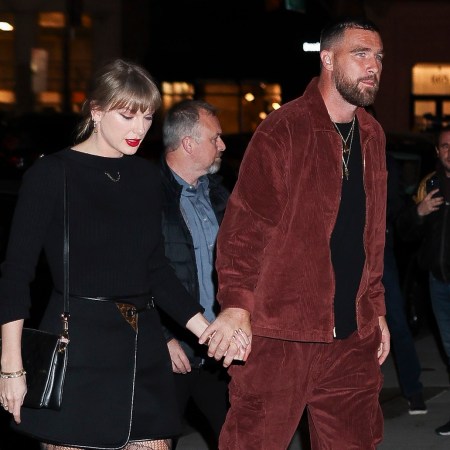When you’ve counseled couples for over 40 years, you tend to pick up on a lot of patterns in relationships, psychotherapist Esther Perel tells me.
Her best-selling books Mating in Captivity and The State of Affairs, and popular podcast Where Should We Begin? have all offered groundbreaking and universal insights on desire and infidelity, as well as many tools to help foster healthier connections. And yet, in her decades of work, she’s noticed that most people are getting worse at one of the most fundamental aspects of relationships: conflict.
In an era of streamlined communication, “we are gradually losing our social skills and experiencing an atrophy of our social muscles,” Perel explains. If someone pisses us off badly enough, we unleash a rage-text, delete the thread and block them as if it never happened. “We don’t really know how to live with disagreements,” she said. “We’ve become a conflict-avoidant society. We can do better.”
This isn’t just an issue for couples. Some of us would sooner cut off from our friends or even siblings than have an argument. So instead of writing another book or launching another podcast to correct this skill deficit, Perel decided that we could all use a class.
Enter: Turning Conflict Into Connection, which launches on October 17. Through eight sessions, complete with videos and workbooks, students will gain a roadmap for navigating their way through a fight. From heated discussions on the floor, to non sequiturs about dessert, Perel gives us a sneak peak at what to expect.
Why Maintenance Sex Belongs in Every Relationship
The positive effects of going after it, even if you don’t feel like itInsideHook: In your work, have you noticed any specific patterns with men and how they fight in relationships?
Esther Perel: With men specifically, there are men who will get in the fight, and there are men who will try very hard to avoid the fight. It has a lot to do with how they were spoken to growing up — how aggressive their own father was with them. A question you can often ask is, where did you learn it? Who did you see do it?
We learn this thing called fighting. We see it at home growing up. We see families where people fight and use words for effect, then make up and life continues. And we see fighting where nobody says anything, and people avoid tension at all costs. And we see fighting that often becomes completely over the top and hurtful and aggressive.
So there’s a range of fighting?
Yes, that’s why when people use the word “fight” or “anger,” I ask them to describe it to me. Because some people say they got angry when in fact they got enraged. People use these words, but in highly subjective ways. At what point do you know that you’re fighting? And at what point do you know that you no longer need to fight? Do you fight as if you think you have nothing to lose? Do you fight because you want the other person to hurt as much as you are hurting but you never say it hurts?
Generally speaking, are men maybe more explosive in arguments and women more emotional? Or is that more of an assumption based on dated gender norms?
Honestly, I think that the difference between aggression socially for men and women is that there is a greater permission for men, culturally speaking, to exhibit aggression than for women. But that doesn’t mean there is a fundamental difference in the relationship itself. In a dynamic, in a relationship, you often have three dances when it comes to conflict.
You have two people who are escalators, two people who are magnifiers or on the more explosive side. Or you have two people who are minimizers, on the avoidant side. Or you have one of each. One person pursuing conflict, arguing, fighting and exploding — and one person holding it together and trying not to react because they’re afraid of their reaction, which becomes bigger and bigger the more the other person comes after them. So there are three primary dances and I wouldn’t necessarily organize them by gender.
Are any of these pairings better than others? Or is everyone bound to fight either way?
I just spoke with someone earlier who was describing how they are more explosive and expressive than their partner, and that causes a rift. That makes her very upset and to try to get a reaction out of him. That causes him to say, “I don’t like this noise. This is too chaotic. This is too emotional for me,” etc. I said to her, “I’m sure when you met, you were drawn to his equanimity, his stability, by the fact that he wasn’t so reactive. And he was probably drawn to your expressiveness, your openness, by you not holding things in.”
The very same things that drew you to each other are now becoming the source of conflict, because you got a little more than you bargained for. Now he becomes the guy that never says anything, and you become the person who can never shut up.What you want is not just to stay focused on the fighting style. But the most important thing is not what you’re fighting about, but what you’re fighting for. What is it that you actually want?
How do couples start to figure out what they’re really fighting about?
You can think that you are fighting about the kids or the in-laws or the money or the sex or whose work matters more or who should wake up in the middle of the night. But fundamentally, you do fight underneath all of that. This is from Howard Markman’s work, who is a major researcher in relationships. You fight for power and control. You fight because there is a person whose priorities feel like they matter more, or who makes more of the decisions, and your needs aren’t taken into account.
You fight because you’re dealing with issues of trust and closeness. Do you care about me? Can I rely on you? Do you have my back? And you also fight over respect and recognition. Do you value me? Do I matter? Do you think about me? That respect is essential.
On the other end of that spectrum, how do couples discover what they’re fighting for? How does that differ from what they think they’re fighting about?
I had a session recently on the podcast that was certainly a situation of that. Supposedly they fought over the dishes, or whatever else she asked him to do. This isn’t the first time I have seen this dynamic, but every time she asked him to do something and he didn’t do it, or didn’t do it right away, what she got upset about was not just that she had to do it herself. What she got upset about was that she was once again feeling all alone, like she felt growing up, when she was the oldest with an absent parent and she had to take care of everything. And she hoped that one day she would find a partner that would not make her feel that kind of aloneness.
So every time she asked him to do something and he didn’t do it, she was thrown back into her worst nightmare. So she got more and more agitated. This is exactly the life she promised herself she wouldn’t live, and she’s being thrown back into that. That’s the “what are you fighting for?” versus “what are you fighting about?”
What makes people so defensive when trying to figure these things out?
We’re mammals. When someone attacks us, the first we do is defend ourselves. It’s also partly because we learn to protect ourselves. [People] develop this strategy even if it’s not a very useful one because it worked at one point. It was necessary. The more they attack someone, the more they’re trying to protect themselves from something. They go together, these two things — not always, but it’s something to explore.
Taken that way, is some level of defensiveness unavoidable because it is instinctual?
There is defensive and there is defensive. There are people who, no matter what you say to them, instantly their first answer is “Well, you did that too.” Therefore, I don’t have to own anything. You can’t have any valid criticism because no matter what you say, I can come back and say, “You did that too.” Basically, you’re saying to the other person, “Your needs are a criticism of me, and if I were to meet them now, I would be criticizing myself.”
Can Jealousy Be a Good Thing for Relationships?
Decoding the green-eyed monster for healthier relationshipsWhat are some examples of more constructive things to say in these instances?
I’m going to make an effort to listen to what you have to say. You’re not just doing this to annoy me. You’re not just doing this to destroy me. You’re doing this because you care about something, and I’m going to try to be curious rather than reactive. I’m going to try to not take what you say and use it to clobber myself, to turn myself into a total victim.
It seems like there are a lot of predictable patterns in most fights in relationships. Is that accurate? If so, how do you start to walk people through that?
It doesn’t matter if they’re talking about kids, money, sex or the in-laws, it all sounds the same. Because they’re driving with confirmation bias, because they’ve already decided “I can’t talk to you. You’re unreasonable. You’re hysterical. You never want to be accountable for anything.” Whatever it is, it makes it so the fights are very repetitive and they won’t resolve anything.
How do you start to shift that perspective?
I began to say, “Let’s make a game out of this. Show me the board game.” So I would break out a big piece of paper and we would draw “He says this, and then he says it again, and then he says it again, and then he’s so pissed off that she doesn’t hear it that he does something that really annoys her. So she takes three steps back.” I have this image of them on a pulley, like a board game, and then you pick a card, and the card is the next provocation, or the card is a pacifying move. I am doing something to make it better, or to make it worse. Everyone knows exactly what they need to do to make it worse, it’s not a very original thing.
The more they come after the other person, the more the other person is trying to keep it together and not say the wrong thing because the rage is mounting inside of them. And the other person interprets this as “It doesn’t matter how upset I am, you don’t care.” The more the rock tries to be more rocky and tries not to become a volcano, the more the other person becomes lava. You begin to see that in a relationship, you co-create each other. The more I do X, the more you do Z. The more you see that, the more you can see that both of you are taken hostage by the fight.
Once people realize that, what happens next?
I said to them, “Can you just continue this fight and please lay flat on the ground and look up.” We are mammals and therefore when we fight, our shoulders go up. Our claws come out. Our teeth appear. But when you lay flat on the ground, your body cannot really fight in the same way. It’s physically impossible.
When couples feel themselves getting into a fight, how can they keep it from getting out of hand?
You can de-escalate a fight at any time. You can de-escalate when you see the thing coming and just say something funny. Humor is the most powerful de-escalator. I’m not talking about sarcasm, I’m talking about humor that aligns you together. Humor that says, “Do you really want to have that fight?” Or: “Here’s the ruler, why don’t you go slap my hand?” Or: “I did that because I was worried I wouldn’t know what to do with myself without your comments.” Find something that makes both people laugh and say, “Our connection is more important than our conflict.”
De-escalation can also just be physical touch. Hold their hand and say, “We still have a bond, this didn’t tear us apart.”
Another form of de-escalation is saying, “What I said was wrong.” Accountability. “I know that what I said was really nasty. I was pissed, I didn’t like the way you talked to me, but I didn’t mean to call you names,” or this or that. Start with what you did wrong, rather than always being an expert on what the other person has done to upset you — since in an escalation, people are quite symmetric. Whatever you accuse the other person of, you probably have done another version of yourself. Accountability is very powerful. “I own my share.” And not “You apologize first, and then I’ll be nice.” It starts with you, and that is okay. It’s okay to take ownership of the part of you that just acted quite unfriendly.
On Friday nights in my house, we used to have dinners with my siblings and their partners. We would have screaming matches over politics — terrible ones, we disagreed vehemently about those things. Then in the middle of the fighting, somebody would say, “The cheesecake is delicious tonight!”
Then we’d just continue. That cheesecake comment reminded us that we’re family, we’re about to see each other tomorrow anyway and this fighting isn’t going to separate us. This fighting just means we have completely different ideas about how to run the world. That is de-escalation — suddenly bringing in the cheesecake.
The Charge will help you move better, think clearer and stay in the game longer. Subscribe to our wellness newsletter today.



























